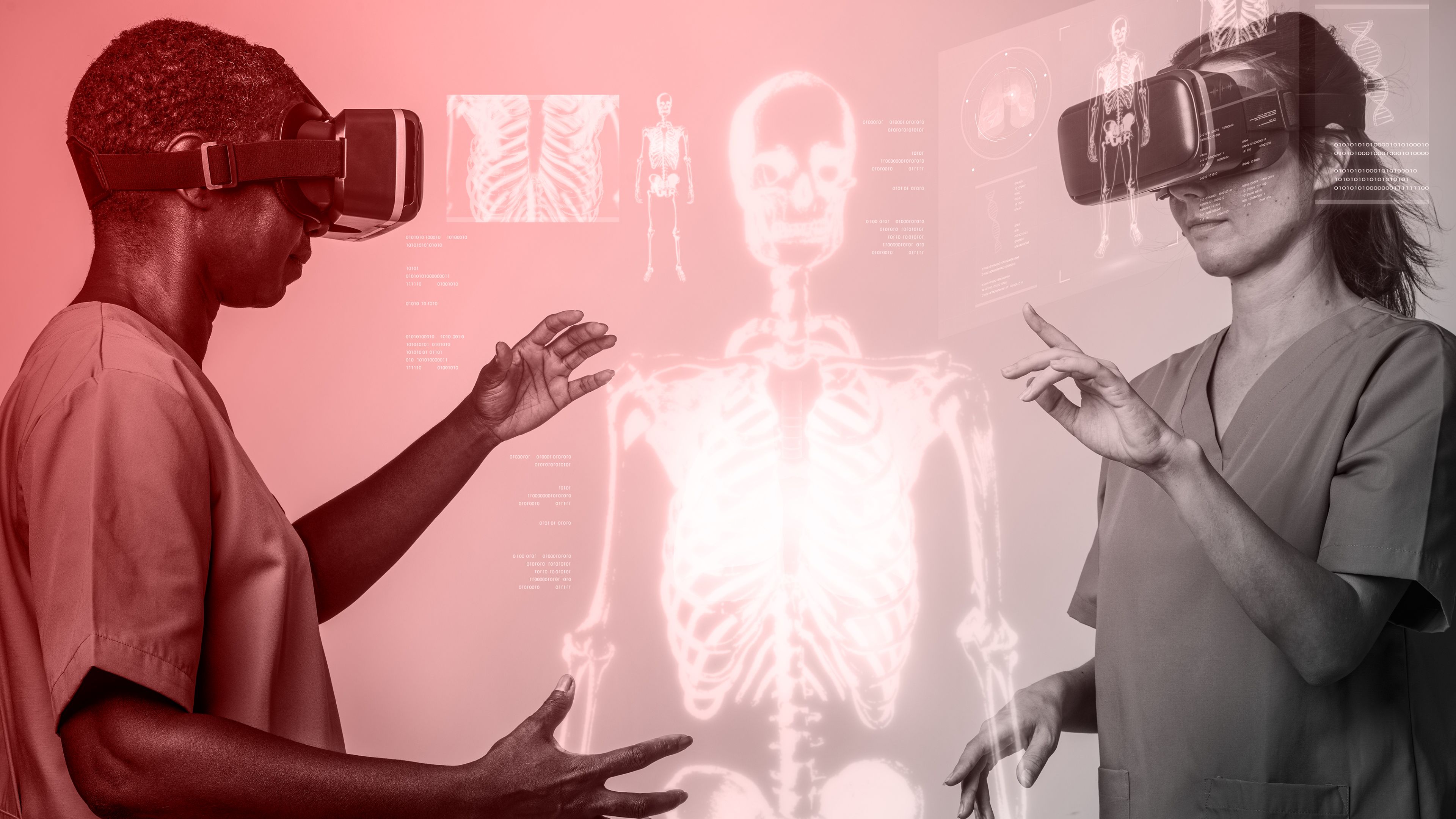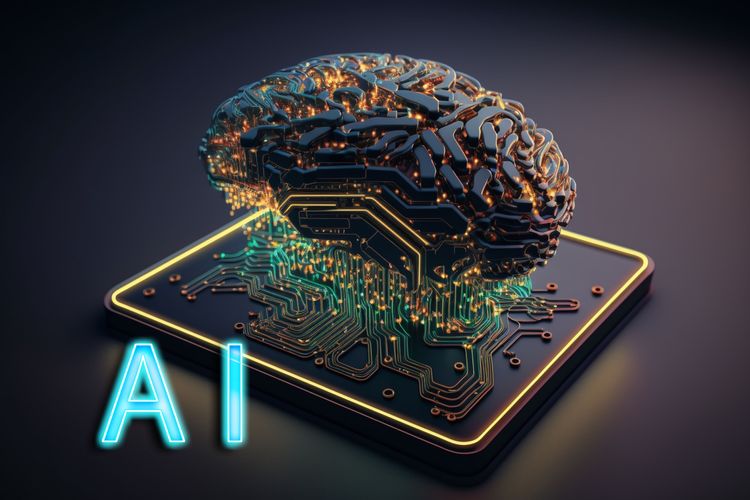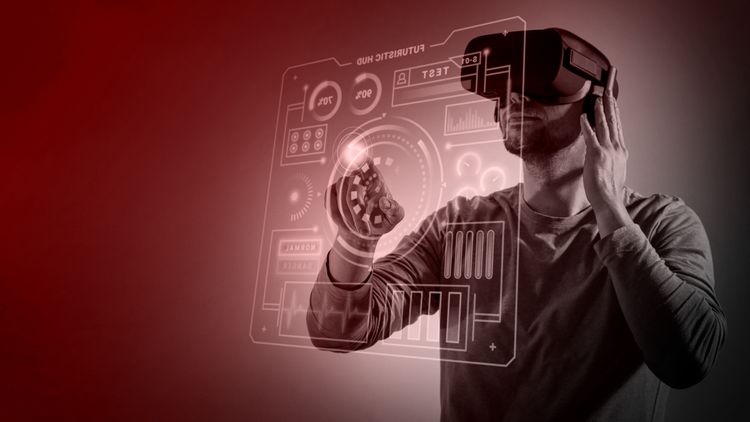AI is revolutionising various industries, including healthcare. By leveraging AI technology, medical professionals can enhance diagnostic accuracy, personalise care plans, and streamline patient management.
In this article, we'll explore the fundamentals of AI, its applications in medicine, real-world examples, and the future of AI in healthcare.

What Is Artificial Intelligence?
Artificial intelligence (AI) is a branch of computer science that deals with the creation of intelligent agents, which are systems that can learn and act autonomously. These agents can be found in many fields such as healthcare, finance, retail customer service applications, and more.
The most common way to create AI is by programming it using a machine learning algorithm. This involves teaching the system how to "learn" from data sets by making mistakes and correcting them based on feedback. Once the system has learned how to handle specific tasks or problems, it can be used for various purposes such as forecasting trends or performing complex calculations automatically.
How is AI Used in Medicine?
Some of the most common applications of artificial intelligence (AI) in healthcare include:
- diagnostic suggestions, prognoses
- personalized care plans.
One example is the use of AI to diagnose diseases. This can be done through machine learning algorithms that are trained on large data sets from medical records or patient surveys. The algorithm then provides recommendations on treatment options based on its understanding of the disease process and previous experience with similar cases. Another application is prognosis prediction. This involves using AI to predict how a patient will progress over time based on their current health status and symptoms history.
Medical AI can help physicians make more informed decisions about their patients' treatments by analyzing large amounts of data from various sources (medical records, scans, etc.) as well as from conversations with doctors and other healthcare providers. It can also help them identify populations at high risk for certain diseases or conditions and recommend preventive measures early on.
In addition to being instrumental in improving overall patient care, Medical AI has the potential to save hospitals a lot of money by reducing errors made during diagnoses and prescriptions.
Finally, it could lead to new revenue streams through services such as online consultations or mobile apps that cater specifically to physicians and their patients.

Examples Of Artificial Intelligence In Healthcare?
AI is being used in a variety of different medical fields, from health care to transportation. In the healthcare sector, AI is helping doctors diagnose and treat diseases more accurately.
For example, IBM’s Watson Health uses natural language processing and machine learning algorithms to help clinicians make decisions about patient treatment.
Using deep learning algorithms, Google's DeepMind is able to improve its pneumonia recognition software by up to 25%. This allows for earlier detection of lung infections and faster care for patients.
Microsoft’s PhotoDNA algorithm detects duplicate pictures on social media platforms within minutes using two lines of code. This helps reduce fraudulent activities such as stolen images used for advertising or phishing schemes that attempt to steal personal information from users.
Similarly, there are several facial recognition softwares and artificial intelligence to identify people with mental illnesses or epilepsy in real time (similar to air reservations). This allows patients who may be at risk for aggression or violence towards themselves or others to be screened quickly and receive appropriate treatment before they become dangerous.
What Is The Future Of Artificial Intelligence In Medicine?
Artificial intelligence is quickly becoming a ubiquitous part of healthcare as it helps to improve the efficiency and accuracy of patient care. In particular, AI has been used in medicine to identify various diseases and patterns in health data. This information can then be used for early diagnosis and more effective treatment plans.
One example of this is IBM’s Watson Health which uses natural language processing (NLP) algorithms and big data analytics to help clinicians diagnose cancer using genomic sequencing data from patients' blood samples. Watson learns from past cases and utilises its machine-learning capabilities to provide personalised recommendations for further diagnostics or treatments.
This technology is also being put into use by hospitals around the world as they strive to reduce costs associated with medical procedures, treat rare conditions, increase accessibility by providing remote consultation services, predict outcomes of surgeries/treatments/medical interventions, etc.
As AI continues developing at an exponential rate, we can expect even more innovative applications that will benefit both patients and doctors alike.

Which Countries Use AI In Healthcare?
Many countries are using AI in healthcare. AI is being used to improve the accuracy and efficiency of patient care by automating tasks that can be time-consuming or burdensome for human nurses and doctors.
For example, AI can help identify potential complications early on so that they may be addressed before they become bigger problems. In some cases, AI has even been deployed as stand-alone medical devices that provide real-time feedback to physicians about a patient's condition.
While AI is still being tested in many fields, countries such as USA, Japan, China, and Korea are already using it in healthcare and have begun to see significant benefits from implementing this technology into their healthcare systems; with estimates indicating that adoption will increase significantly over the next few years.
Conclusion:
AI is transforming the healthcare sector by improving diagnostic accuracy, personalizing patient care, and streamlining medical processes. From IBM's Watson Health to Google's DeepMind, AI technologies are already making significant strides in enhancing patient outcomes.
As AI continues to evolve, its role in healthcare will undoubtedly expand, offering even greater benefits to both patients and medical professionals. Embracing AI in healthcare promises a future of more efficient, accurate, and personalised medical care.





